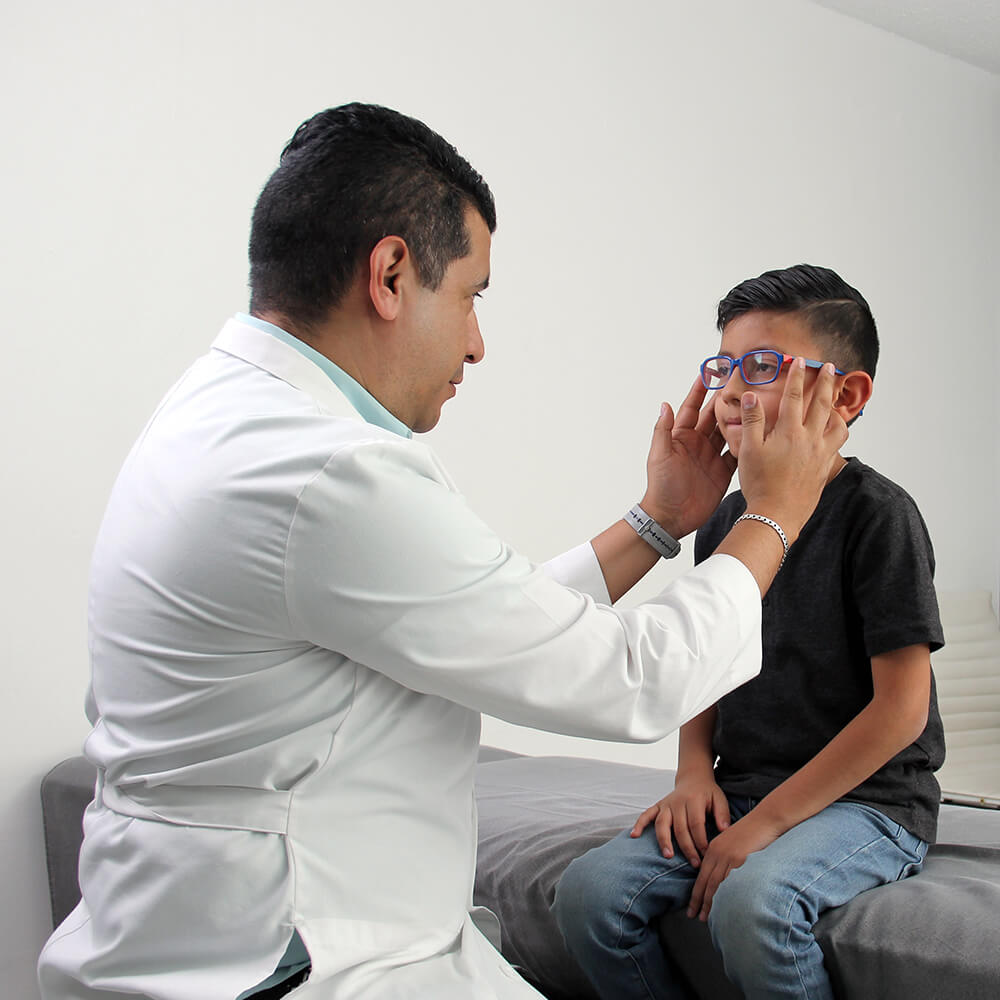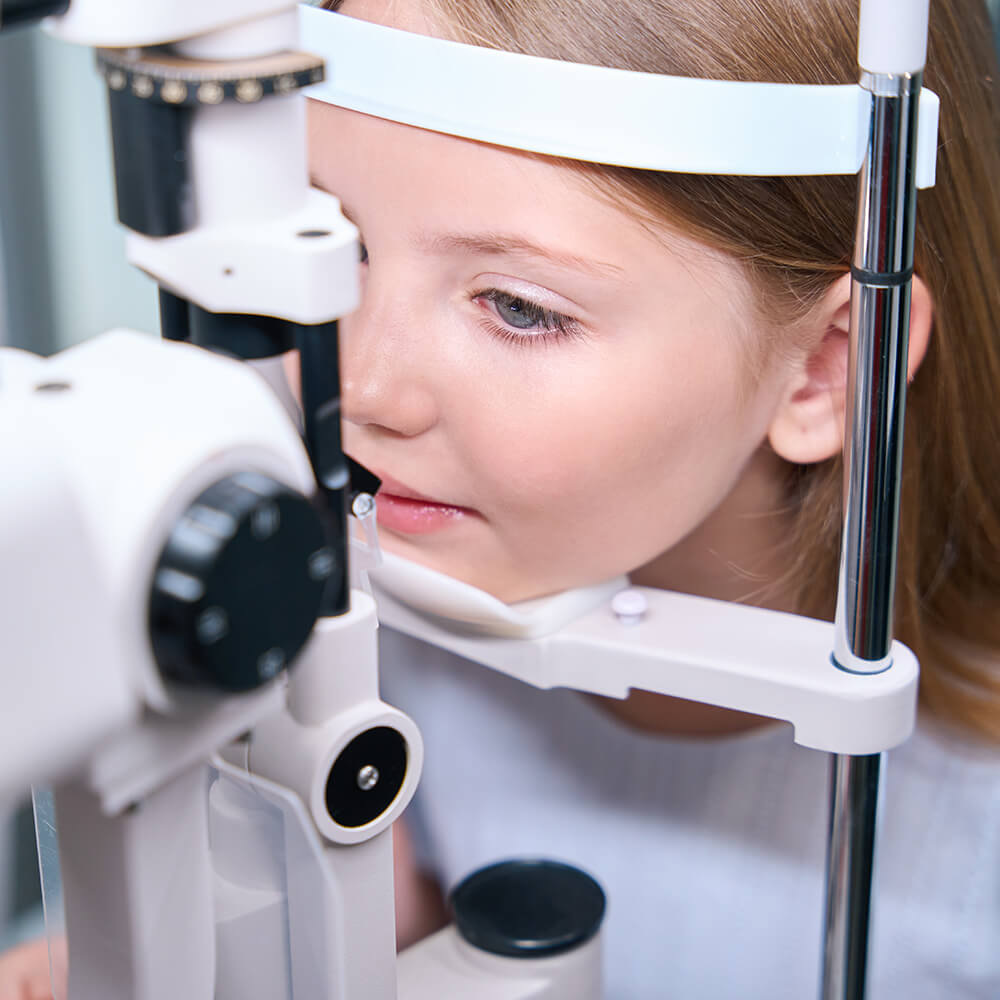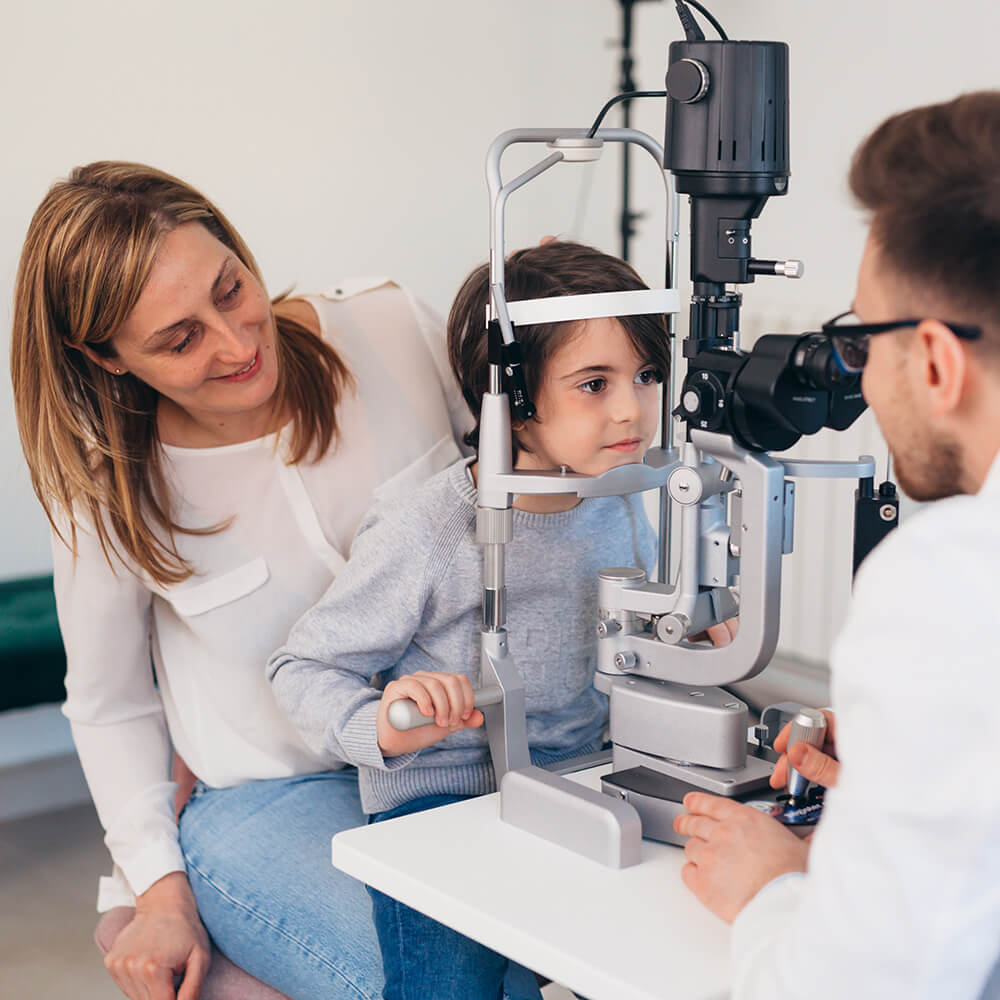

At Retina & Vitreous of Texas, our Houston pediatric retina specialists provide comprehensive eye care for infants, children, and adolescents. We understand the importance of healthy vision development and work to detect, treat, and manage pediatric eye conditions early.

Pediatric ophthalmology is a subspecialty of ophthalmology that deals with the diagnosis and treatment of eye vision conditions in infants, children, and adolescents. The goal of pediatric ophthalmology is to optimize visual development and prevent or treat eye problems early on to avoid lifelong vision impairment.
Book an AppointmentThe retina is the light-sensitive tissue lining the back of the eye that contains specialized nerve cells called photoreceptors. These photoreceptors convert light into electrical signals that are sent to the brain to produce vision.
The retina undergoes crucial development in infancy and childhood. The retina contains specialized light-sensitive nerve cells called photoreceptors that convert light into electrical signals sent to the brain to produce vision.
Pediatric retina refers to the retina in infants and children, which is still maturing. Normal visual development requires proper maturation of the pediatric retina.
Any disturbances can lead to certain eye conditions such as amblyopia, refractive errors, strabismus, and other vision disorders. Careful examination of the pediatric retina by a pediatric ophthalmologist allows early detection and treatment of abnormalities to promote healthy visual development and prevent lifelong vision impairment.
Regular dilated eye exams facilitate the evaluation of the still-developing pediatric retina.

Houston Pediatric Retina is part of Retina & Vitreous of Texas, a premiere retina practice in the state. We are proud to have three highly esteemed doctors who specialize in pediatric retina conditions and treatments.
Our eye doctors ensure that your family and child are informed and at ease throughout your entire experience with our clinic. We promise to guide you through with compassion and care.
Book an Appointment


Pediatric retina conditions can arise from developmental abnormalities, infections, injuries, or other eye diseases. Proper examination and early treatment by a pediatric ophthalmologist is key to preserving vision. Here are some of the most common pediatric retina problems that are treated at Retina & Vitreous of Texas in Houston, TX:
Retinopathy of Prematurity (ROP)
ROP is an abnormal blood vessel growth in the retina of premature infants that can lead to retinal detachment and blindness if not caught early. Careful screening and timely treatment with laser or cryotherapy prevent vision loss.
Coats Disease
This condition is characterized by abnormal development of retinal blood vessels, causing leakage of fluid or blood in the retina. Laser treatment can minimize vision loss if caught early.
Retinoblastoma
Retinoblastoma is a malignant cancer of the retina occurring in young children. This condition often requires chemotherapy, radiation, laser treatment, freezing, or surgery to treat the tumor and save the eye.
Macular Disorders
Macular disorders cause central vision problems arising from damage to the macula region of the retina. This condition requires close monitoring and sometimes surgery.
Retinal Detachment
Retinal detachment is the separation of the retina from the back of the eye. This requires prompt surgical repair to reattach it and preserve vision.
Your child's first visit to a pediatric ophthalmologist is an important step in detecting and treating any eye conditions early for optimal vision development. Our priority is to be as thorough and complete as possible during the first visit to fully evaluate ocular health and detect any conditions requiring treatment or management. Here are some tips to help you prepare your child and yourself for the initial appointment:

When you arrive for your child's first appointment, our receptionist will greet you and ask you to complete the registration paperwork. To simplify and expedite your visit, consider completing the registration forms prior to arrival. Please bring any referral records from your child's doctor, along with a list of current medications and dosages. Also, bring identification cards, insurance cards, and any vision or medical records related to your child's eyes or vision.
Arriving fifteen minutes early allows time to get your child signed in and provides the staff with important information needed to properly evaluate your child's eyes and vision. Having complete medical and registration information helps maximize the time spent with the doctor examining your child's eyes thoroughly.
First, your ophthalmic technician will have an in-depth discussion with you to gather a detailed medical and ocular history for your child. The technician will check your child's vision using an age-appropriate eye chart and measure the pressure inside the eyes.
Dilating drops will be placed in the eyes to open your child's pupils widely. Dilation is necessary for your child's eye doctor to examine the retina. It takes approximately thirty minutes for the eyes to become fully dilated, with the effects lasting two to six hours. Your child may have temporarily blurry vision until the drops wear off.
One of our pediatric retina specialists will then perform a very thorough ophthalmologic and retinal examination of your child's eyes. If additional diagnostic testing is needed, such as retinal photography, angiography, ocular ultrasound, or visual field testing, this will be completed.

Our goal is to assist and coordinate with all of our participating health insurance providers, as well as Medicare. We are pleased to be participating providers for Medicare and most major health insurance plans.
As specialists, we only accept primary health insurance, not separate vision insurance. Please contact us to learn more about our insurance policies.
No, we do not provide routine vision exams or prescriptions for glasses or contacts. We specialize solely in conditions affecting the back of the eye, which is the retina and vitreous. We do not provide treatment for cataracts, glaucoma, LASIK, or other front-of-eye conditions.
However, we can refer you to appropriate specialists for these services if needed.
Yes, it is standard for us to dilate eyes during exams to thoroughly evaluate retinal health. Dilation typically lasts four to six hours.
If your child is old enough to drive, have them bring someone to drive home, especially after a first visit. Dilation can impair vision temporarily.
Please bring your insurance card, driver's license/ID, and any completed patient forms. You can submit forms online prior to your visit.
We highly recommend visiting a retinal specialist annually in addition to your optometrist if your child has diabetes. This allows close monitoring and early treatment of any retinal conditions associated with diabetes to ensure the best eye health.